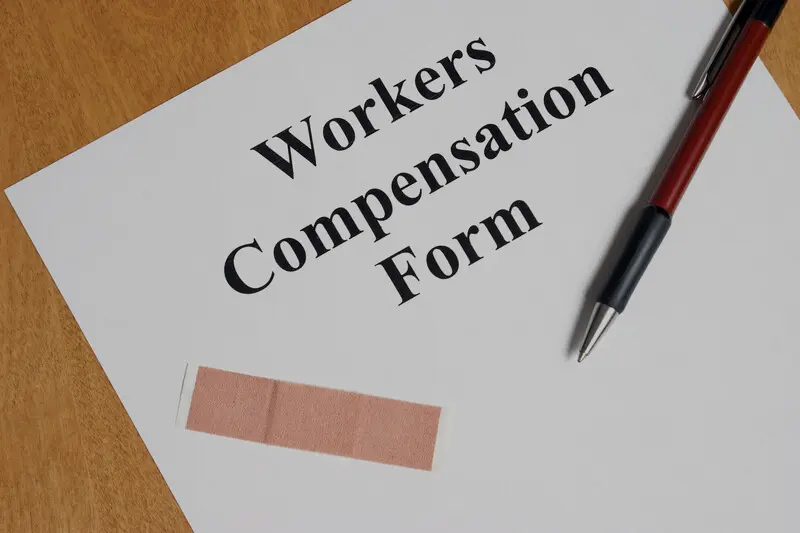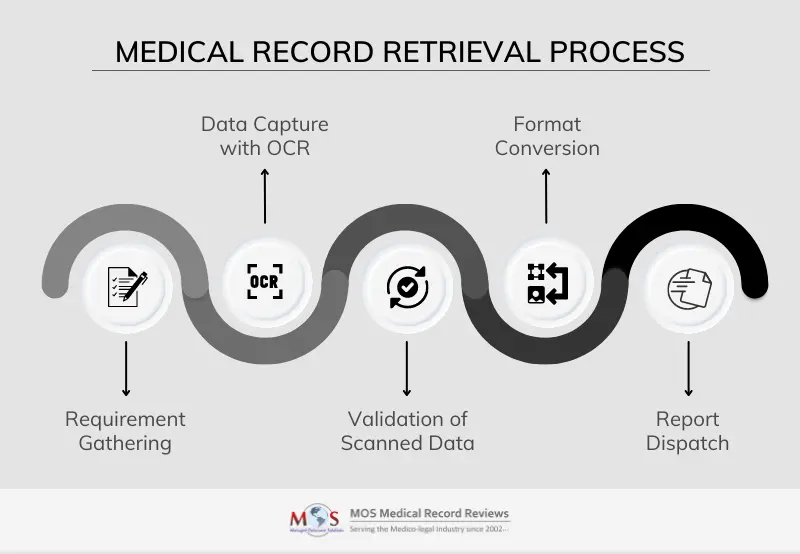Medical record retrieval is crucial for workers’ compensation cases because the medical records provide vital information that helps to determine the validity of the claim and the extent of the worker’s injuries. Medical records are the most reliable source of information about an injured worker’s medical history, treatment, and prognosis. In a workers’ compensation case, it is essential to establish a clear link between the injury and the work-related activity.
Managed Outsource Solutions provides value-added medical record retrieval services.
After reporting an injury to the worker’s compensation insurance company, the decision regarding payment or denial is typically made by an insurance adjuster within two weeks. The adjuster’s decision relies heavily on the information provided in the medical documentation. In cases where a worker’s claim is denied, it becomes necessary to build a formal case. Attorneys specializing in these cases must have a thorough understanding of medical records to identify crucial areas that can impact the case outcome. They must know how to order the medical records and also which medical records are relevant to the particular case. Legal teams must have a clear understanding of the medical record retrieval process and how to handle the same efficiently. This is where medical record retrieval services gain significance by assisting attorneys in collecting the relevant medical records.
Complex Medical Records – a Major Challenge
Retrieving medical records is a delicate and time-sensitive process that requires the requesting party to know what they are looking for and where to find it. The most important records are usually the written or typed notes drafted and signed by the doctor. Handwritten notes in the worker’s chart can also be valuable in a worker’s compensation case. However, the completed dictated and typed doctor’s treatment notes following an examination are typically the most significant for building a worker’s compensation case.
Furthermore, medical record retrieval is crucial for law firms due to various reasons. Law firms often require access to medical records to represent clients who have sustained injuries or illnesses due to someone else’s negligence. Obtaining comprehensive and accurate medical records is essential for building a strong case, understanding the extent of the injury or illness, and determining appropriate compensation. Let us consider the steps a medical review company follows to secure the necessary medical documentation for their client attorneys.
The Medical Record Retrieval Process
- Requirement Gathering: A medical record review company collaborates with clients to understand their medical record retrieval needs and the preferred format.
- Data Capture with OCR: The medical record data is captured by exploring various data sources and EMR systems.
- Validation of Scanned Data: The scanned data is checked for accuracy, dates, and other details describing the care details.
- Format Conversion: Patient records are converted into the format preferred by the client.
- Report Dispatch: The complete workflow is tracked and converted into work reports.
Using Medical Record Retrieval to Support the Case
When pursuing worker’s compensation, several primary factors come into play, including medical treatment and weekly wage benefits. Injured workers or their legal representatives must present a compelling case to a judge or insurance company to secure workers’ compensation. Medical records or documentation play a vital role in proving the case’s merits. Two key elements that decision-makers consider are:
- Documentation of the type of treatment recommended by the doctor
- Documentation stating that the worker requires specific treatment for a work-related medical problem or injury
Insurance companies and judges examine these medical records to determine if the worker has a work disability preventing him or her from earning their full wages. The records should also establish that the worker’s injuries or disability resulted from their work. Clients should obtain these documents as they can provide evidence whether a pre-existing condition was aggravated or caused by work.
Sometimes, it may be necessary for a workers’ compensation lawyer to write a formal letter and request an examination by a secondary doctor to obtain further insights into the cause and consequences of the work-related injury. This step is taken when a case is delayed due to insufficient medical documentation.
The benefits of medical records and their retrieval in this context include:
- Establishing Causation: Medical records help establish whether the injury or illness is directly related to work, which is essential for determining the employer’s liability.
- Identifying Pre-existing Conditions: Medical records can reveal pre-existing medical conditions that may be relevant to the case, helping the law firm assess the impact of the injury or illness on the client’s overall health.
- Evaluating Treatment: Medical records aid in evaluating the appropriateness and effectiveness of the medical treatment received by the injured worker.
- Supporting Expert Testimony: Medical records support expert testimony in court, allowing medical professionals to explain the extent of the injury or illness and the required medical treatment.
- Determining the Extent of Injury: Medical records assist in determining the nature and severity of the injury, the duration of disability, and the need for ongoing medical treatment.
- Calculating Compensation: Medical records play a key role in determining the amount of compensation the injured worker is entitled to receive.
- Facilitating the Claims Process: Retrieving medical records speeds up the claims process by providing necessary information to the insurance carrier and other involved parties.
- Helping Settlement Negotiations: Complete and accurate medical records facilitate settlement negotiations by providing a clear understanding of the injury or illness, required treatment, and potential damages.
Medical record retrieval is crucial in workers’ compensation cases as it provides essential information to assess the validity of a claim, determine the extent of injury, and calculate appropriate compensation. These records provide objective evidence that can support or refute a claim, while also expediting the claims process. In conclusion, medical record retrieval is crucial for law firms as it provides essential information for building strong cases and obtaining appropriate compensation for clients affected by negligence. Accurate and comprehensive medical records support expert testimony, facilitate settlements, and help establish liability and damages.
Let MOS (Managed Outsource Solutions) handle your medical record retrieval process!
Choose our trusted services for comprehensive insights. Contact us today at [email protected] or call 800-670-2809!





